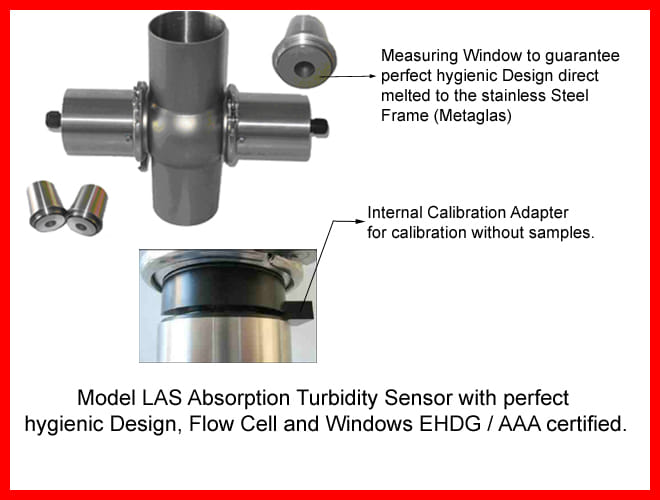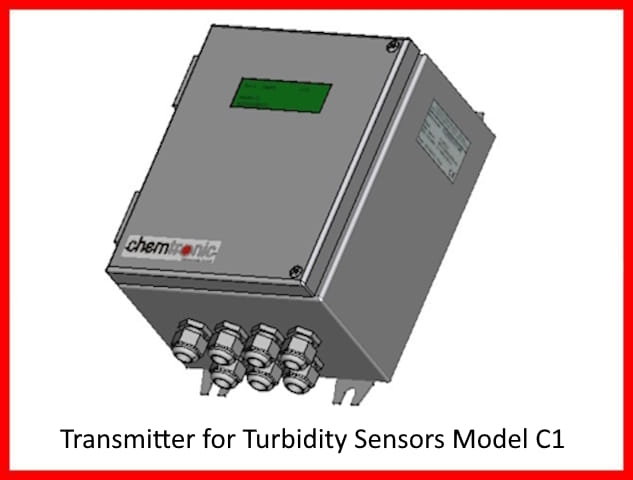Process Turbidity Sensor Model LAS
Description:
The process Turbidity Sensor model LAS measures Particles and other haze creating substances in liquids.
Configurable for the measurement of:
EBC / TEF/ FTU /ppm /mg/l / g/l / % TS/ AU/ CU/ OD / …
Measuring principle:
The inline turbidity sensor model LAS uses the principle of near-infrared light absorption (NIR) to detect turbidity in liquids. A beam of light shines through the product to be measured. A detector is positioned opposite of the light source and detects the NIR component emanating from the light source. The detected NIR radiation changes depending on the respective turbidity.
Low turbidity = high intensity
High turbidity = low intensity
The measuring transmitter evaluates the intensity signals and calculates the resulting measuring values.


NIR absorption measurement method:
– The measurement of absorption will be in the near infrared spectrum.
– IR absorption allows precise measurements and compensates for influences caused by changes in color.
Low maintenance / long service life:
– Less maintenance and longer service life due to optimized measuring cell with Sapphire measuring windows.
– The stainless steel melted Metaglas windows are extreme easy to clean and offer additional coating protection.
Calibration / maintenance interval typically 12 months (depending on application):
– As a rule, the calibration should be checked every 12 months.
– Inbuild calibration filters allows for calibration within a few minutes.
– However, the maintenance interval depends on the measuring range and application.
Measuring lamp, gas-filled (λ 380 – 1100nm), service life approx. 1 year:
– The measuring lamp is filled with gas and has a service life of approx. 1 year.
Measuring cell material typically stainless steel 1.4404 / 316L
– The TH Variline measuring cell is made of stainless steel and offers hygienic design (3A).
Sealing material: FKM (optionally FFKM, EPDM, silicone, …):
– The seals are made of FKM.
– Seals made of other materials such as EPDM, FFKM or silicone are optionally available.
Process connections: DIN flanges, ANSI flanges, NPT, …:
– Various connection options for different process requirements.

